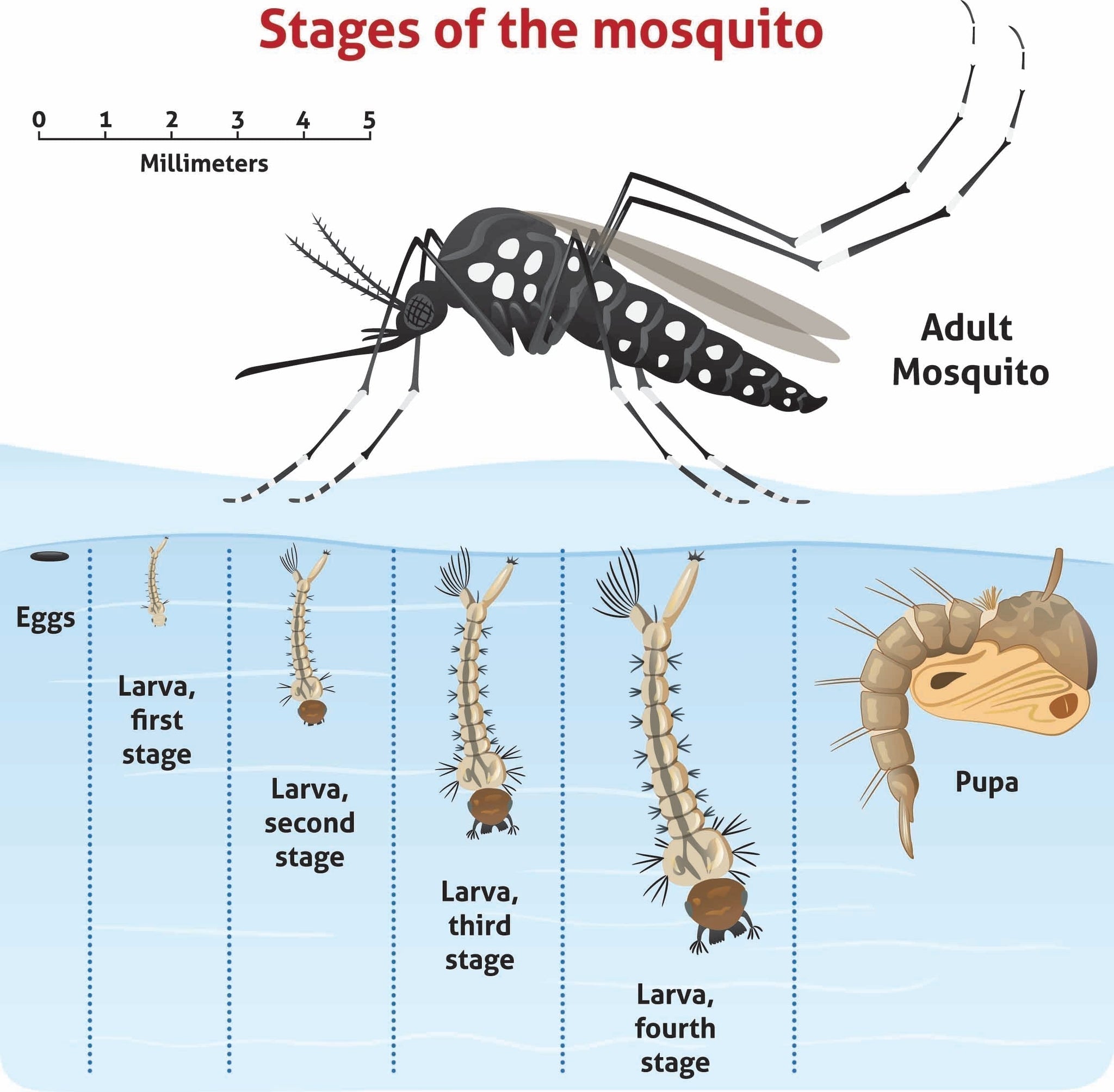
Breaking the Cycle: How to Disrupt the Breeding Habits of Mosquitoes and Other Biting Insects in Long Island
Let’s be honest—few things can ruin a beautiful day outside faster than being swarmed by mosquitoes or picking up a tick while gardening in Long Island. What most people don’t realize is that the key to keeping these pests under control isn’t just about swatting them away—it’s about disrupting their breeding cycles before they explode into full-blown infestations.
Understanding how and where these biting insects reproduce is the first step to taking back your yard. But unless you stay consistent, these pests will always come back. Let’s dive into how their life cycles work—and how you can break the cycle for good.
Related: How MosquitoNix Works
Mosquitoes: From Egg to Airborne in Days
Where They Breed:
Mosquitoes lay their eggs in standing water. It doesn’t take much—just a bottle cap full is enough. Common breeding spots include:
- Clogged gutters
- Bird baths
- Kiddie pools
- Flower pot saucers
- Tarps and toys left in the yard
- Unused tires
The Life Cycle (Quick and Relentless):
- Eggs hatch in 24–48 hours after being laid on water.
- Larvae (aka "wigglers") live in the water for 4–14 days.
- Pupae (or "tumblers") transform into adult mosquitoes in 1–4 days.
- Adults are ready to reproduce within 24–48 hours of emerging.
From egg to bloodsucking adult? Less than a week, in warm weather.
Ticks and Fleas: Slow and Steady Reproducers
Ticks:
Ticks don’t breed in water—they lay eggs in leaf litter, tall grasses, and wooded edges. A single female can lay up to 5,000 eggs at once. Their development can stretch over 2 years, and they don’t die off with one cold night.
Fleas:
Fleas love warm, shaded areas, especially in your yard where pets roam. Females lay about 40–50 eggs a day, usually in pet bedding or carpets. Like mosquitoes, their life cycle from egg to adult is shockingly fast—often just 2–3 weeks.
Flies and Gnats: Backyard Breeders
Flies and gnats lay their eggs in moist, decaying organic matter—like compost, garbage, manure, or even mulch.
- Flies can go from egg to adult in as little as 7 days.
- Fungus gnats love overwatered houseplants and potting soil.
How to Disrupt the Breeding Cycle
Many of these insects typically breed and lay eggs early in the morning, around dawn, and late in the evening, after dusk. You can absolutely disrupt the life cycle of biting insects, but it requires timing and unrelentless consistency.
1. Remove Breeding Grounds (Every. Single. Week.)
- Dump standing water every 3–5 days (including saucers, toys, even bottle caps).
- Clear gutters and drains.
- Change bird bath water regularly.
- Avoid overwatering garden beds and potted plants.
2. Use Larvicides or Natural Additives
- Coffee grounds sprinkled in standing water can disrupt mosquito larvae development.
- Essential oils like peppermint, eucalyptus, or rosemary can deter adult insects from laying eggs.
3. Create Inhospitable Habitats
- Keep grass short and remove leaf piles to reduce tick and flea nesting areas.
- Aerate compost and turn mulch to prevent fly eggs from thriving.
- Use cedar chips or diatomaceous earth to repel pests naturally.
But Here's the Catch...
All of this works—but only if you’re relentlessly consistent. Miss a week or two? Boom. You’ve got a fresh batch of mosquitoes ready to bite, or ticks hatching in the brush behind your fence.
That’s where most people fall off. Life gets busy, weather changes, and suddenly… the bugs are back.
The Smarter Way: Automatic, 100% Botanical Pest Control
Imagine a system that does all the work for you. A solution that:
- Targets insects before they bite by interrupting the breeding cycle.
- Runs automatically, whether you're home, awake or not.
- Uses 100% botanical solution that are safe* for people, pets, and pollinators.
- Leaves bees and butterflies completely unharmed.
This isn’t a pipe dream—it’s the future of pest control. Safe*, effective, and out of sight! You set it, forget it and it protects your yard day in and day out. This is the MosquitoNix Long Island difference!
Explore: Mosquito Misting Systems
Final Thought: Win the War Before It Starts
Stopping biting insects isn’t just about dealing with the ones you can see—it’s about stopping the ones you can’t. And once you understand how quickly they breed, it becomes clear why just spraying once or draining water occasionally won’t cut it.
By breaking the cycle with a continuous, automatic, organic solution, you not only get your yard back—you get peace of mind, every single day.
*MosquitoNix Pro is safe when used as directed.
Leave a comment
Comments will be approved before showing up.




